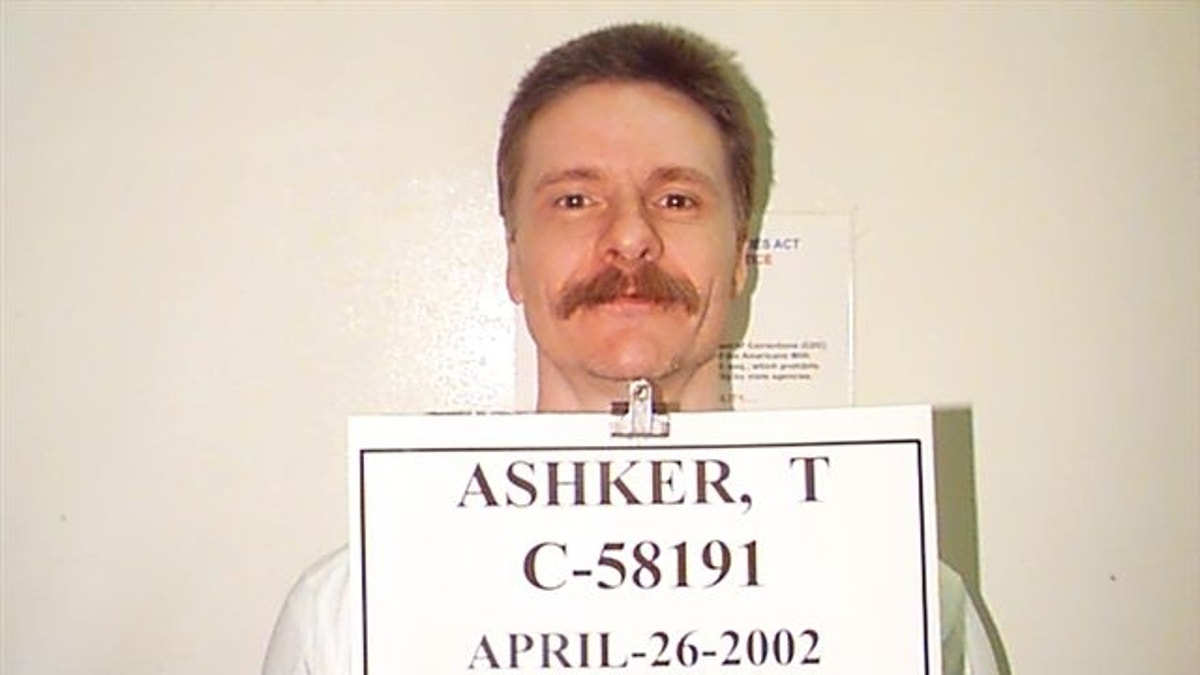
This April 26, 2002 file photo provided by the California Department of Corrections and Rehabilitation, shows Todd Ashker, a validated leader of the Aryan Brotherhood, who has been in the Security Housing Unit since 1992. Ashker, who is serving a life sentence for the second-degree murder of a fellow inmate at Folsom State prison in 1987, is the first named inmate in a class-action lawsuit over solitary confinement at Pelican Bay State Prison. (California Department of Corrections and Rehabilitation via AP) (The Associated Press)
SACRAMENTO, Calif. – Attorneys representing inmates held for years, sometimes decades, in California's notorious isolation cells plan to announce Tuesday what they say is a major development in a lawsuit challenging the practice.
The Center for Constitutional Rights, which represents the inmates, said no other state keeps so many inmates isolated for so long.
The announcement comes on the deadline for settling the inmates' federal class-action lawsuit. A rally by inmate advocates and prisoners' family members celebrating the undisclosed development is set for noon at a state building in Oakland.
The lawsuit contends that holding inmates in 80-square-foot, soundproofed and windowless cells for all but about 90 minutes each day at Pelican Bay State Prison amounts to cruel and unusual punishment.
Nearly 3,000 inmates are held in such units statewide. About half of the inmates are in solitary confinement. The rest are in cells that hold more than one inmate.
The conditions prompted intermittent hunger strikes by tens of thousands of inmates throughout the prison system in recent years. The practice of yearslong isolation also prompted criticism this summer from President Barack Obama and U.S. Supreme Court Justice Anthony Kennedy.
Segregated inmates have no physical contact with visitors and are allowed only limited reading materials and communication with the outside world. Prison officials have said the restrictions are necessary to keep imprisoned gang leaders from directing illegal activities in prison and on the street.
The suit was initially filed in 2009 by two killers serving time in the security housing unit, known widely as the SHU, at Pelican Bay on California's North Coast. By 2012, Todd Ashker and Danny Troxell were among 78 prisoners confined in Pelican Bay's isolation unit for more than 20 years, though Troxell has since been moved to another prison. More than 500 had been in the unit for more than 10 years.
Twenty-eight inmates had spent more than two decades in segregation units as of late July, and 34 had been segregated for more than 10 years. That's down from August 2011, when 128 inmates had been segregated more than 20 years and 723 inmates had been segregated for more than a decade.
Officials have reduced the number of inmates in segregation at Pelican Bay and three other state prisons from 4,153 in January 2012 to 2,858 currently. They are reviewing each inmate's case to see if they can be transferred out of the segregation units or if they qualify for a program that lets them gradually earn their way out by behaving and avoiding gang activity. Segregation units also are located at prisons in Corcoran, Folsom and Tehachapi.
Gang leaders can serve unlimited time, while other inmates can be sent to segregation for up to five years for crimes committed in prison, including murder, attempted murder, drug trafficking, arson and extortion. They can earn their way out for good behavior in half the time under new rules adopted in June.







































